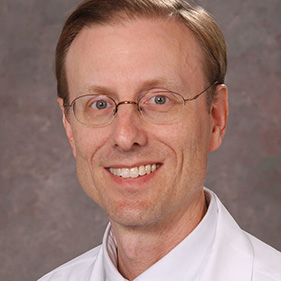Musculoskeletal conditions like osteoarthritis, rheumatoid arthritis or osteoporosis affect more than half of people in the United States and are the leading contributor to disability worldwide. They limit mobility and dexterity, leading to lower levels of well-being and reduced ability to engage in society.
To better support patients suffering from musculoskeletal conditions, UC Davis Health's Division of Rheumatology has teamed with orthopaedic surgery, radiology and sports medicine. Together, they're conducting musculoskeletal radiology rounds to ensure these patients get comprehensive treatment.
"Musculoskeletal conditions affect many people and can affect your joints, bones and muscles and sometimes associated tissues such as nerves. They can range from minor injuries to long-term conditions," explained Barton L. Wise, professor in residence for rheumatology. "Because of population growth and aging, the number of people living with musculoskeletal conditions and associated functional limitations is rapidly increasing."
According to a report from the United States Bone and Joint Initiative, chronic musculoskeletal conditions account for about $332 billion in health care spending. The cost of treating major musculoskeletal diseases, which often includes treating long-term pain and disability, is greater than for treatment of most other common health conditions.
"Unfortunately, when considered as a whole, musculoskeletal care traditionally is delivered by a fragmented system of providers," Wise said. "To improve the delivery of musculoskeletal care, we have built a system to examine the multifaceted nature of their conditions."
To improve the delivery of musculoskeletal care, we have built a system to examine the multifaceted nature of their conditions." -Barton L. Wise
Musculoskeletal radiology rounds have optimized patient care and driven research
To address the need for effective musculoskeletal care, the team meets bi-monthly to discuss complex musculoskeletal cases. One faculty member or fellow leads the discussion for a patient case, sharing radiographs or other imaging and providing a didactic presentation on literature for the condition. Following the presentation, the team conducts a discussion of the disease processes that are happening and potential treatment modalities.
"The multi-perspective view on the patient and disease makes these meetings suitable for discussing complex cases and diagnostic or treatment challenges," said Cyrus Bateni, health sciences associate clinical professor and faculty lead of the musculoskeletal radiology rounds. "The structure of the session allows for problem-solving, shared responsibility for decision-making and the ability to carry out a care plan while working towards the common goal to optimize patient care."
The structure of the session allows for problem-solving, shared responsibility for decision-making and the ability to carry out a care plan while working towards the common goal to optimize patient care."-Cyrus Bateni
The benefits of the multidisciplinary musculoskeletal radiology rounds extend beyond improving patient care. As the region's only academic medical center, the rounds have provided fellows and residents with broad investigational experience focused on musculoskeletal health.
"These sessions have certainly been engaging to the residents and fellows, exposing them to a combination of education and clinical care," explained Bateni. "Board examinations sometimes include material that is not what you would immediately think of as rheumatology-specific, but tests related conditions they will need to be able to identify."
Additionally, the sessions have helped faculty members develop research ideas that have not been published for their specialty.
"As researchers, we must continue to capitalize on our expertise and envision how we can broadly support the patients of tomorrow," added Wise. "This will help us expand our knowledge and ultimately allow us to better understand the big picture of musculoskeletal health."








